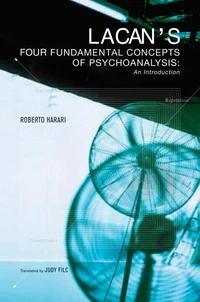In this lucid and compelling analysis of Lacan's twenty-third seminar, "Le Sinthome, " Roberto Harari points to new psychoanalytic pathways that lead beyond Freudian oedipal dynamics. Lacan's seminar measures the boundaries between creativity and neurosis. We learn how poetry and wordplay may offer alternatives to neurotic pain and even psychotic delusions, with Joyce as our subject. This new translation makes the intricacies of Lacan's seminar available to the English-speaking world for the first time.
The author's accessible, vigorous prose explains the nuances of Lacanian theory with perfect clarity. In the extraordinary encounter between Lacan and Joyce, Harari reveals unexpected affinities between them both as theorists and writers. It illustrates how literature is the aesthetic domain that is closest to the analytic experience.
In this lucid and compelling analysis of Lacan's twenty-third seminar, "Le Sinthome, " Roberto Harari points to new psychoanalytic pathways that lead beyond Freudian oedipal dynamics. Lacan's seminar measures the boundaries between creativity and neurosis. We learn how poetry and wordplay may offer alternatives to neurotic pain and even psychotic delusions, with Joyce as our subject. This new translation makes the intricacies of Lacan's seminar available to the English-speaking world for the first time.
The author's accessible, vigorous prose explains the nuances of Lacanian theory with perfect clarity. In the extraordinary encounter between Lacan and Joyce, Harari reveals unexpected affinities between them both as theorists and writers. It illustrates how literature is the aesthetic domain that is closest to the analytic experience.

 , qui est-ce ?
, qui est-ce ?